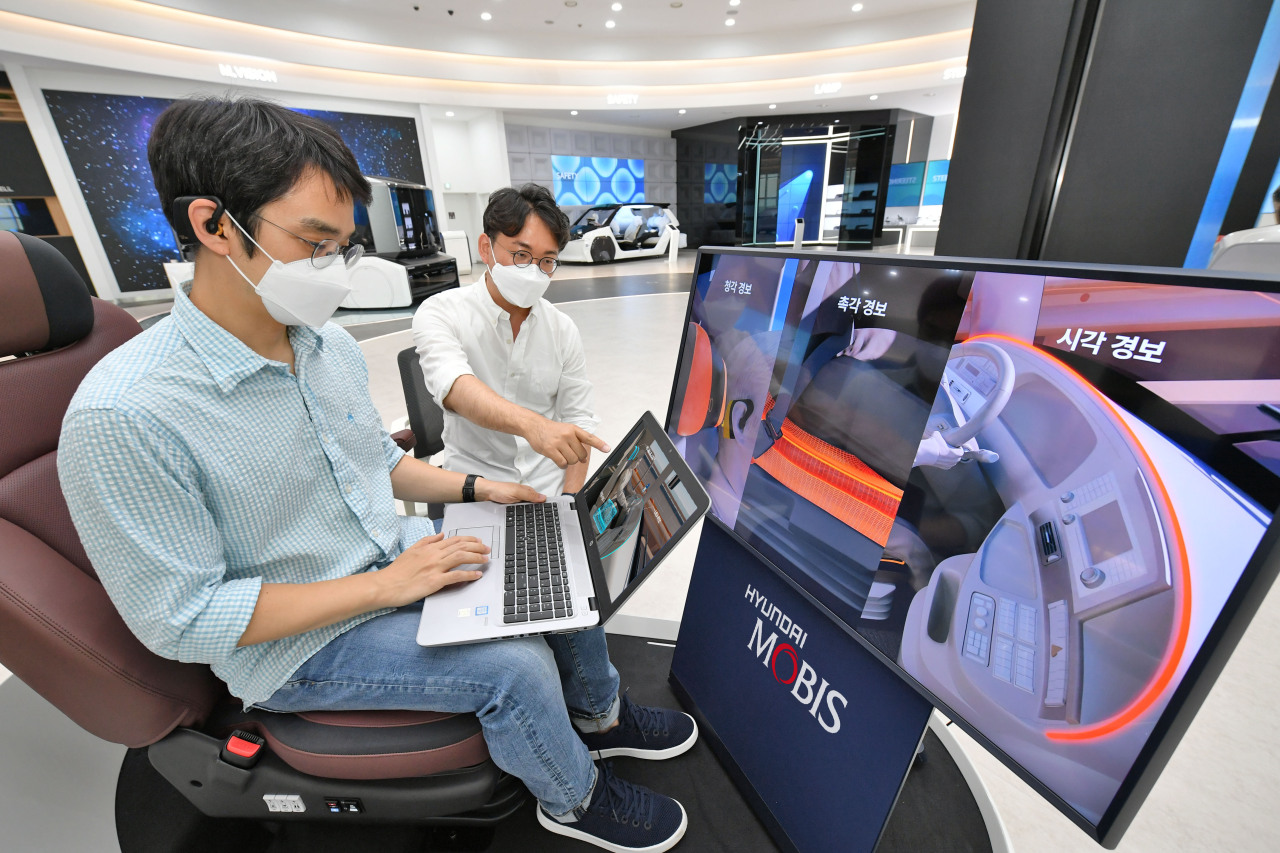 |
A Hyundai Mobis researcher tests M.Brain, the company’s brainwave detection technology for drivers. (Hyundai Mobis) |
Hyundai Mobis developed a brainwave detection device to alert motor vehicle operators against drowsy driving or sudden health issues, the auto parts developer said Wednesday.
According to Hyundai Mobis, it completed development of M.Brain, a brainwave measuring technology that monitors and analyzes the driver’s brainwaves in real time, with earpiece sensors.
While health care technologies measuring various biosignals are being developed by many others in the automotive industry, Hyundai Mobis said it is the first worldwide to develop a brainwave measuring device -- one of the most difficult biosignals to analyze.
The company said it has concentrated on the project over the last three years and adopted some of the latest technologies, such as machine learning to interpret the brainwave signals.
M.Brain monitors the driver’s health conditions and attention levels using data collected from the earpiece worn by the driver. When the driver loses attention, a linking smartphone app sends a warning signal to prevent potential accidents.
Not only on the app, but the warning signal can also be conveyed via light-emitting diodes around the driver, vibrating seats and headrest speakers, the company added.
Hyundai Mobis said it will partner with Gyeonggi Province to test the brainwave detectors in public buses running in the province, and expand application in the future.
“We are making progress in the digital health care sector for cars, adding to the necessary technologies for passenger safety and convenience for autonomous driving settings,” a Hyundai Mobis official said in a press release.
The brainwave detection technology would also be applicable to monitor the conditions of both drivers and passengers, so that the vehicle could automatically make adjustments to satisfy individual needs, the auto parts developer said. This could include the car immediately directing the vehicle to a nearby emergency room when the device detects the health failure of a passenger, Hyundai Mobis added.
By Jo He-rim (
herim@heraldcorp.com)








